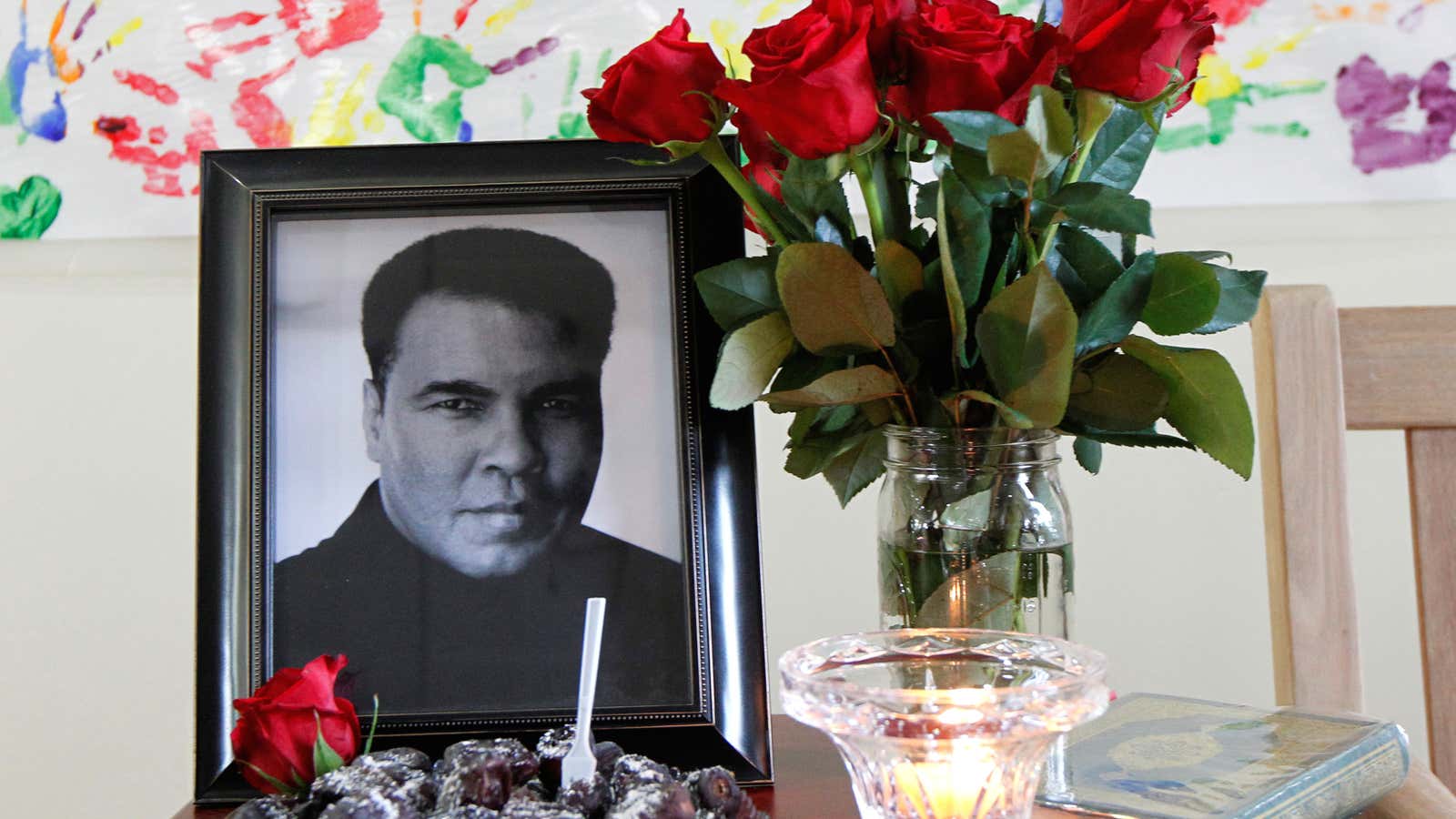The funeral of Muhammad Ali is ten years in the making. As an Ali family spokesperson explained at press conferences this week, the boxing legend, acclaimed civil right icon, and global humanitarian personally approved the details of his funeral arrangements over a ten-year period.
If only we all would learn this final lesson from the Champ.
When people discover that I’m a physician who specializes in meeting the needs of seriously ill individuals and their families, they are often eager to share their experiences of caring for an aging loved one or for ailing family members who may be nearing the end of life. Sometimes, our conversation may trigger them to share their end-of-life wishes with a loved one or seek to know the wishes of another. More often though, I hear about the pain, angst, and stress these family members have experienced precisely because they weren’t able to speak to their dying loved one before the person became incapacitated.
It doesn’t have to be this way.
While it may feel scary or overwhelming to think about our own deaths, asking yourself basic questions about how, where, and when you’d want to die, if given the choice, is a critical first step. Would you prefer to be at home or not? Would you want loved ones around you? Do you envision attempts to keep you from dying with resuscitation and life support measures or do you prefer a natural death? These are not easy questions to ask ourselves or conversations to have with our loved ones. But they are necessary ones if we want to leave this world on our own terms and ease the burden loved ones will face when it’s our time to go.
Unfortunately, the very people we expect to help guide us through these conversations are not well prepared. A recent national poll found that while almost all doctors think having end-of-life conversations with their patients are important, nearly half said they frequently or sometimes feel unsure of what to say and less than one-third reported having had any formal training specifically on talking with patients and their families about end-of-life care. Why is this the case? Because our medical culture default is set up first to keep people alive at all costs. Conversations about how to die can be seen or feel as going in direct opposition to that cultural norm.
So what can individuals do? First, consider identifying a legal surrogate decision maker. This person is someone you trust to follow your wishes at a time in the future when you cannot make your own decisions, even if challenging situations arise, like family tensions or unanticipated medical events. Any adult can serve as your surrogate regardless of whether they are related to you or not. Ideally, that person should be very knowledgeable about your values and wishes and formally accept the responsibility. Additionally, consider completing a living will or similar advance directive form. Although this shouldn’t replace conversations with loved ones or your legal surrogate, completing a living will can be a practical way to express your general values and wishes around life support and serve as a guide for loved ones and your healthcare providers. In some states, other documents like a Physician Orders for Life-Sustaining Therapies form may allow you to complete surrogate and living will designations together.
Second, learn about palliative care. This specialized medical care focuses on helping seriously ill patients and their families and provides an extra layer of support to address symptoms and the stress of being ill during any phase of treatment. Talking to a palliative care doctor is appropriate at any age or stage of a serious illness. Typically, palliative care is available in most hospital settings and as a home health care service in many parts of the country.
Finally, familiarize yourself with hospice, a specialized, interdisciplinary care option for those who are likely to die of a terminal illness in the next 6 months and are no longer pursuing curative treatments. It focuses on helping a person, and their family, live the best they can until they die. Hospice can be provided at home, in a nursing home, and in an inpatient hospice setting; it is particularly important if you decide you do not want to die in a hospital. When ill, all roads lead to hospitalization and once in the hospital, many barriers can prevent a transition home to die. It’s important that loved ones and healthcare providers know your preference in advance.
Death is inevitable, but how we die usually is not. Resources like The Conversation Project, PREPARE, The Letter Project, and Five Wishes can help individuals begin to think about their values and preferences surrounding their deaths.
Most of us probably will not need to spend as long as the Ali did in planning his funeral. But by spending the appropriate amount of time we need to think carefully about our values and wishes and sharing them with loved ones, we can be intentional about the experience of our death for ourselves and for those we care about, and in the process, nudge our larger culture into embracing instead of hiding from this universal final stage of life.




